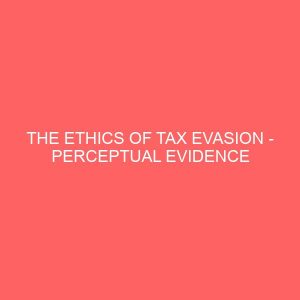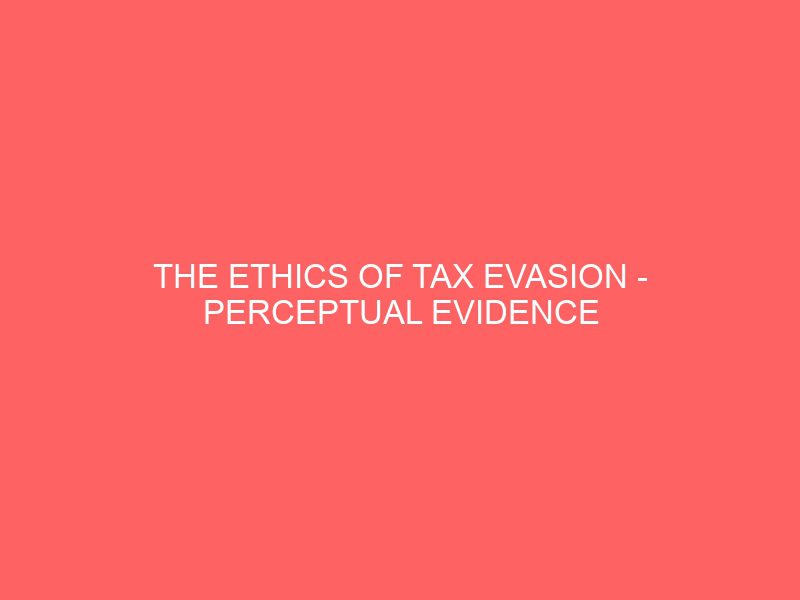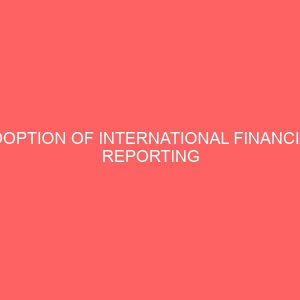Description
The ethics of tax evasion – perceptual evidence from Nigeria (case study of some selected local government area in Ado-ekiti, Ekiti state).
Abstract
Tax evasion has the effect of distorting the principle of perfect market resource allocation with rippling effects on the state of infrastructures. Tax evasion in most developing countries is so rampant and this development is much exacerbated by the fact that not many of these countries have made an effort to measure the ethical reasons that taxpayers give, the extent of this problem and at the same time analyze its impact. Thus, this study is directed towards understanding the behavior of taxpayers towards tax evasion in Nigeria. The study made use of statistical tests for population means and level of significance tests to evaluate the hypotheses formulated for the study. The study shows that the hypothesis that tax evasion is ethical sometimes is not accepted. The study also found that the level of tax evasion when the government is corrupt is significantly higher than when it relates to other views expressed on government discrimination, unjust treatment and tax affordability. There are indications from the study that the various arguments that respondents gave to justify tax evasion include government corruption, unfair treatment of citizens, tax affordability and an unfavorable tax system. This shows that the responsiveness of government in terms of accountability, human rights treatment and optimal tax rate play a significant role in the payment of taxes. The Government and other policymakers should find the results of this study useful in discouraging tax evasion and in developing tax policies aimed at minimizing tax evasion.








Reviews
There are no reviews yet.